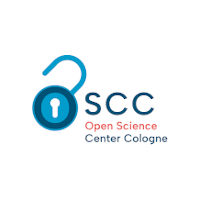Open Science Principles
The potential of Open Science can only be fully realized if this approach becomes an integral part of research practice worldwide.
The Open Science principles are addressed to all university members who conduct or support research and/or teaching. The University of Cologne strongly recommends implementing the principles outlined here and making scientific outputs - for example, publications, research data, codes, or teaching and learning materials - publicly available as far as possible. In doing so, specific requirements and restrictive framework conditions of the various scientific disciplines are taken into account.
University of Cologne (2024): Open Science Principles.
Open Research
Providing public access to the research process not only increases its transparency and credibility, it can also significantly improve the effectiveness and quality of subsequent processes.
- Therefore, UoC recommends openness in all phases of a research project. In some disciplines, practices such as preregistration, publication and peer review of the research question and methodology (registered reports), and prepublication (preprint) have already been established.
- UoC also encourages the publication of null results and the recognition of such research contributions as they significantly contribute to the state of research.
The cultural shift towards Open Science also requires an open approach to errors in research and teaching processes, which are always a part of human action and learning.
- Therefore, UoC encourages its members to adopt a transparent and tolerant culture towards mistakes and to move away from blame culture.
Open Access
- UoC recommends that its members publish all research results Open Access, provided that it does not result in any disadvantages for them or for the UoC.
- UoC recommends that researchers make their submitted manuscripts (preprints) available on recognized preprint servers according to subject-specific conventions.
- UoC supports Open Access Publication structurally, such as through the operation of repositories and Open Access journals, as well as with financial and administrative resources.
FAIR / Open Data
- UoC adopts the principle of the European Commission "as open as possible, as closed as necessary" and aligns itself with the Guidelines for Good Scientific Practice (GWP) of UoC to facilitate public access to research results.
- UoC expects researchers to actively use existing, high-quality research data from trustworthy repositories for sustainability purposes.
Open Research Software & Open Code
- UoC recommends using open-source software if it is available in a high-quality and secure form.
- For the preservation of research outcomes, it is beneficial to avoid proprietary data formats in the interest of interoperability and long-term accessibility.
- UoC advises researchers to share and publish their scripts and software under suitable Open Source licenses whenever possible.
Open Educational Resources (OER)
- UoC supports the use and creation of OER in teaching and emphasizes that when using public domain or open licenses, it is necessary to analyse and consider the intellectual property rights of all creators involved in OER resources by establishing appropriate agreements for further use of teaching, learning resources and research materials.
- The UoC is co-operator of the state-funded OER portal ORCA.nrw (Open Resources Campus NRW) and provides advisory services for OER. Teachers are recommended to stay informed about these services.
